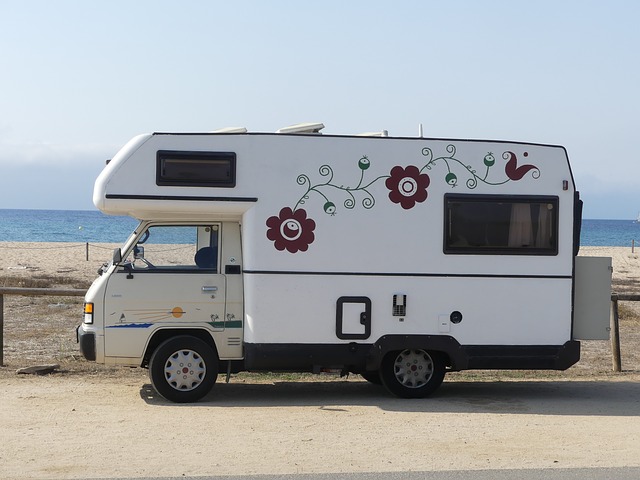A New Alphabet And Some Numbers
There are times when I think of myself as overtly adventurous. I see myself in crisp capris, head tilted back to laugh at gathering or departing clouds, one foot poised on the step of my RV.
The retirement option of selling everything I own and becoming a full-time RVer seems to fit that visualization. Loking much younger than my years, I'm using my RV to locate and document the best reading locations in the U.S. of A. And maybe selling a few human interest and travel articles along the way.
Blink twice. Swallow. Blink again.
When I let the concept of being a full-time RVer sort of grovel around at my feet and knees rather than take over my psyche, I found out just how much there is to know about driving your home around.
First of all, there's an alphabet to sort through. There are four types of RV - A, B, B+, and C.
We'll start small. Those are the B and B+ RVs (although I really think they are being generous with the title). The B class is basically a camping van, although they now come with swivel toilets and fold-away sinks if you so choose. The B+ RV is slightly larger, probably built on the equivalent of a small bus chassis. You can get a stand-up shower! Both highly maneuverable. A bit cramped for full-time life. If I chose this class, I'd probably spend some bucks on "mental health nights" in hotels.
Next in line are the Class C RVs. These are built on a truck chassis. They are easy to spot - they're the ones with a bed compartment protruding over the truck cab. Spacier than the B and B+ class, there are all kinds of amenities that can make the interior pretty stylish. Not a lot of storage. Not a lot of "living space". Still pretty maneuverable.
Then come the big, bad boys - the Class A Motorhomes. They are just what they are called: homes with motors. Initial costs on these brand new can be daunting, but some in the RV field think a used model is a better buy anyway - the kinks have been worked out.
Despite my visualization, and the call of the open road, research and practicality say this probably isn't going to work as my retirement. This lifestyle is not just a buy it and live it for free enterprise. The monthly cost of being a full-time RVer can be from $1000 to $10,000, depending on size of rig and what you're doing with it. And there's all kinds of maintenance needed if you're on the road all time time (and something called gray water). I can barely keep my floor swept!
In reality, I cannot see myself and my dogs rolling down the highway easily. What I can see is myself, draped over the steering wheel sobbing to beat the band while parked in the middle of a main thoroughfare because I can't make the turn. Probably a more realistic visualization.
